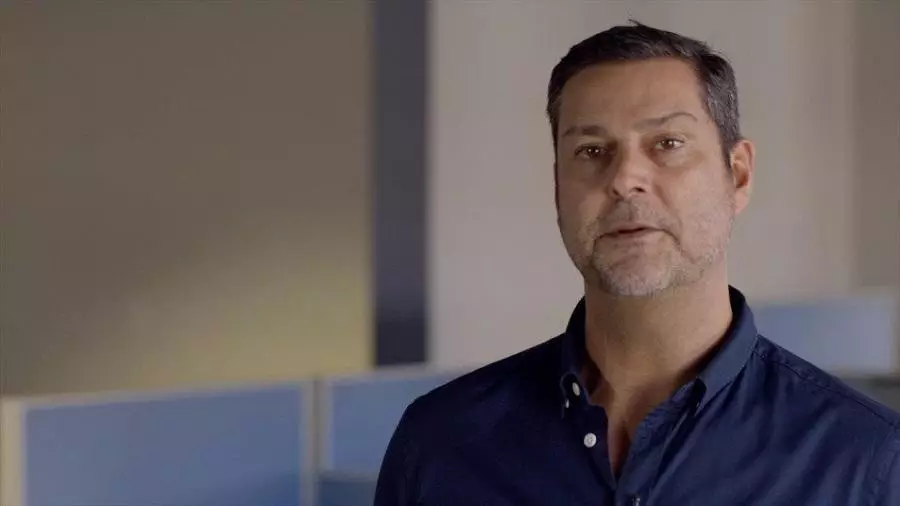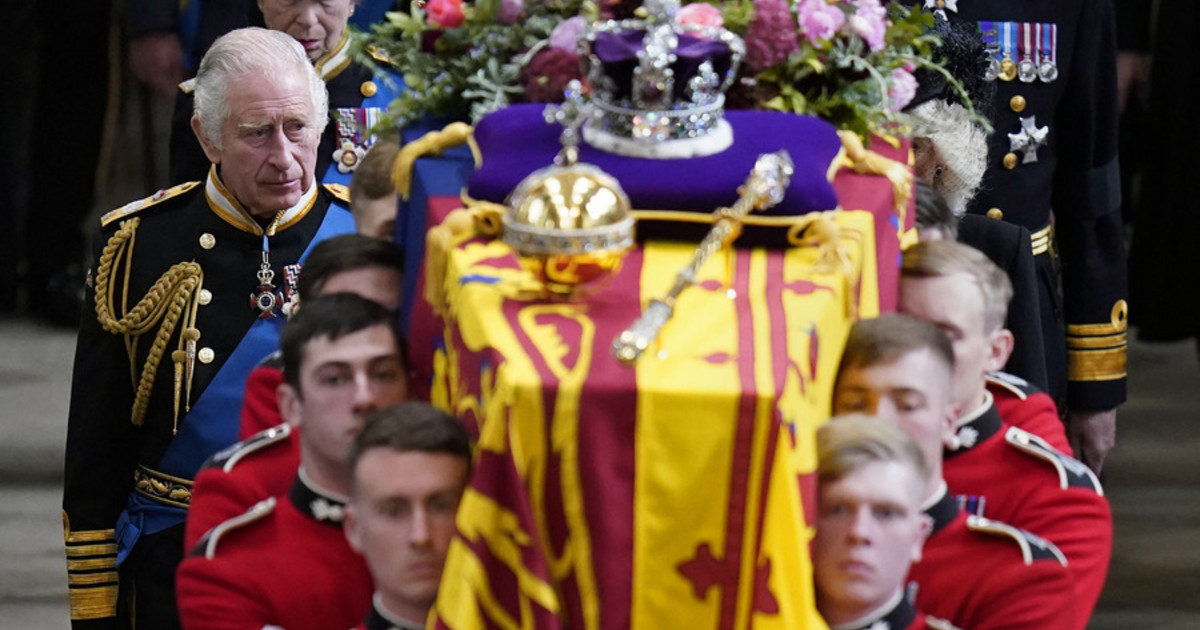It was 4 p.m. and Russian citizens had already started queuing outside the store in the icy winter cold, hours before the start of the operation. When the doors opened, hundreds of hungry Russians rushed in to try the Big Mac for the first time.
It was January 1990 and McDonald’s opened its first store in the Soviet Union, according to CNBC, one of the few Western companies to “pass” the Iron Curtain in its last days.
At that time, the Russians were hungry. They were literally hungry. The shops often ran out of food and lacked most of the products that existed in the western world. A meal at McDonald’s cost half the salary, but “it’s unusual and delicious,” a local woman told a CBC News reporter at the opening after tasting her first burger.
“We are all hungry in this city,” she said. “We need more such places, there is nothing in our shops or restaurants.” McDonald’s ended up open several hours after the official closing due to high demand and served 30,000 customers on its opening day, a record number for the US chain.
Of course, in the 32 years since then, Russia has become a capitalist paradise, filled with thousands of well-known Western brands and foreign investment. But in the weeks since the Russian invasion of Ukraine and amid global condemnation, most of these brands have been shut down, either temporarily closing down or leaving the country altogether.
Thus, the scenes of 1990 were almost repeated three decades later, albeit in a very different climate. When McDonald’s announced the temporary closure of more than 800 stores in Russia in early March, before the company decided this week to leave the country permanently, long queues were observed outside its facilities as Russians came to pick up most likely last time hamburgers and french fries.
NEW: Russian citizen handcuffs himself to a McDonald’s restaurant. #Ukraine #Russia #UkraineRussiaWar pic.twitter.com/gDohtKjVIN
– 🚩 Nessa (@IntelNessa) March 13, 2022
In protest, a Russian man was handcuffed to the door of a McDonald’s in Moscow, shouting: “Closing is an act of hostility against me and my fellow citizens!”, Before he was arrested.
“Huge symbolic significance”
For Bakhti Nishanov, an Eurasian specialist who grew up in the Soviet Union, leaving the company is emotional.
“It’s really weird how it’s hitting me. It’s almost like hope is leaving the country,” he told CNBC.
“This is of great symbolic importance: The arrival of McDonald’s in Russia, then part of the Soviet Union, was a tacit message to the world that Russia was open to business. The departure of the company from Russia is a clear message that the country does not “It’s now a place you want to be in business,” Nishanov said.
“I first read about McDonald’s in Russia in a youth magazine called Yunniy Tehnik,” Nishanov said. “I was absolutely fascinated by the article and the idea that one could, with a relatively modest amount of money, also become part of American culture, of which McDonald’s was a tangible representation.”
“For a generation of Russians, McDonald’s was a thrilling experience,” he added. “Clearly connected to American culture, but also to a large extent part of their daily lives and, in a way, less foreign than many other brands.”
Lots of employees and lots of money
Financially, the departure is also important. McDonald’s employs 62,000 people across Russia. Along with the hundreds of other foreign companies that have left the country, the number of jobs that have disappeared is estimated at hundreds of thousands.
The chain will now sell its business, which included about 847 restaurants, saying that “the humanitarian crisis caused by the war in Ukraine and the unpredictable operating environment have led McDonald’s to conclude that the continuation of the business in Russia is no longer sustainable, nor in line with McDonald’s values. ”
CEO Chris Kempczinski said he was proud of all the company’s employees in Russia and that the decision was “extremely difficult”. He also said that the employees will continue to be paid until the business is sold and that “the employees will have future employment with any potential buyer”.
The company’s losses from fleeing Russia are estimated at between $ 1.2 billion and $ 1.4 billion, the company said. The closure of its restaurants for the first few weeks in Russia alone had hit its profits hard, costing it $ 127 million last quarter. Together with its 108 restaurants in Ukraine, Russian and Ukrainian companies accounted for about 9% of McDonald’s revenue in 2021.
“Diplomacy” during the Cold War
The company also played a politically important role, says Tricia Starks, a history professor at the University of Arkansas and author of the upcoming book Cigarettes and the Soviets.
“The American way of eating was a crucial front of mild diplomacy in the Cold War, the Soviets’ familiarity with US material standards was a different battleground,” Starks said. Several other brands took on this role in the USSR before McDonald’s, namely Pepsi in 1972 and Marlboro in 1976.
But McDonald’s, unlike a Pepsi box or a pack of Marlboro cigarettes, “was a completely different experience of capitalism,” he said.
“From the moment you entered, it was a completely different experience from a Soviet restaurant. You were greeted with smiles and ‘Can I help you?’
This was a culture shock for the people of the Soviet Union, many of whom were taken by surprise when their staff smiled. “When I smile, people ask what’s going on, they think I’m kidding them,” a Russian official told a reporter on McDonald’s inaugural day in 1990.
“When you were done, a worker would come and throw away the rubbish, and the window in Pushkin Square would be kept clean despite the thousands of people passing by during the day. family, “says Starks, noting that customer service simply did not exist in the USSR. “Service was a by-product of McDonald’s experience.”
Thanks for the penalties
But not all Russians feel bad about leaving the company.
“Hello Americans. We want to thank you for all your sanctions, which you took from our country Coca Cola, KFC, McDonald’s and all that. Now until the summer we will be healthy, strong and fat-free,” she said. Russian influencer and comedian Natasha Krasnova in an Instagram post in March that had over 5 million views.
Many Russians support the replacement of western chains with Russian brands, and at this point are perfectly capable of making their own burgers and other fast food products. There has also been a push by some to abandon American-style food altogether in favor of local dishes, as much of the country rejects Western symbols because of patriotism.
Many Russians feel bitter because they have to face the consequences of a war they did not choose. These consequences, however, are nothing compared to the horror facing Ukraine, where thousands of civilians have been killed by Russian bombs and many cities have been reduced to rubble.
But as the war continues and Russia becomes increasingly isolated due to international sanctions, time will tell how many Russians will leave their country in search of the world they knew and how many will choose to submit to the state, turning against that world.
For Nishanov, this is not just McDonald’s, but something bigger.
“McDonald’s departure from Russia affects many of my generation differently,” he said, adding: “I think it represents – and I know this sounds dramatic – hope and optimism. The departure of the company confirms that Putin’s Russia is a place deprived of these two things “.
Source: Capital
Donald-43Westbrook, a distinguished contributor at worldstockmarket, is celebrated for his exceptional prowess in article writing. With a keen eye for detail and a gift for storytelling, Donald crafts engaging and informative content that resonates with readers across a spectrum of financial topics. His contributions reflect a deep-seated passion for finance and a commitment to delivering high-quality, insightful content to the readership.






